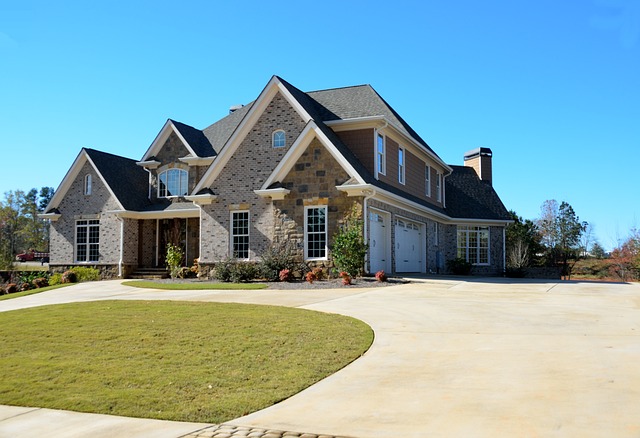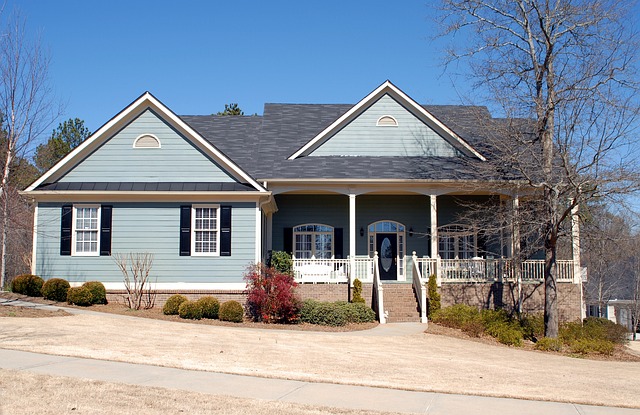Considering the intricacies of property investment in Singapore, understanding the Additional Buyers’ Stamp Duty (ABSD) for second properties is paramount. This article delves into the legal framework governing ABSD, providing clarity on eligibility, exemptions, and calculations to effectively manage a property portfolio within the country’s regulatory environment. Whether you’re an existing or prospective property owner, the insights offered herein will guide you through the ABSD implications for your second property in Singapore.
- Understanding ABSD for Second Properties in Singapore: An Overview
- Eligibility and Exemptions: Navigating the ABSD Framework for Additional Properties
- Calculating ABSD on Your Second Property in Singapore
- Implications of ABSD on Property Portfolio Management in Singapore
Understanding ABSD for Second Properties in Singapore: An Overview
In Singapore, the Additional Buyers’ Stamp Duty (ABSD) is a duty payable on transactions involving the purchase of residential properties by entities, individuals, and corporations. For individuals, the ABSD for purchasing a second property or more comes with stringent regulations designed to curb speculative demand and ensure a stable property market. As of the knowledge cutoff in 2023, Singaporeans buying their second residential property are subject to an ABSD rate of 12 percent. This rate increases progressively for individuals purchasing their third and subsequent properties, with rates up to 15 percent for the fifth and subsequent properties. The Singaporean government implements these measures to maintain the affordability and accessibility of housing while preventing excessive demand that could lead to property bubble formation.
For foreign entities, the ABSD rate is significantly higher, at 20 percent for the purchase of any residential property in Singapore. This reflects the country’s strategy to protect the interests of local residents in the housing market and to prevent short-term speculative investments that could impact the long-term stability of property prices. It’s important for prospective buyers to understand these ABSD implications when considering the acquisition of a second property in Singapore, as the duty can be substantial and will affect the overall cost of the property purchase. The Inland Revenue Authority of Singapore (IRAS) oversees the administration and enforcement of ABSD, providing clear guidelines and regulations that must be adhered to. Prospective buyers are advised to consult these resources or professional advisors to ensure compliance with all legal requirements associated with the ABSD for second properties in Singapore.
Eligibility and Exemptions: Navigating the ABSD Framework for Additional Properties
In Singapore, the Additional Buyers’ Stamp Duty (ABSD) framework serves as a regulatory measure to curb speculative property buying and ensure a stable property market. For individuals purchasing their second property, understanding the ABSD requirements for an AbsD Singapore 2nd Property is crucial. Eligible applicants must be Singaporean citizens or permanent residents; foreign entities or individuals are subject to higher duty rates. As of the latest updates, Singaporeans buying a second residential property are exempt from ABSD if they are replacing their current home. However, this exemption does not apply to properties bought within six months after acquiring the first property, nor to properties acquired by way of gift or inheritance. Permanent residents and entities are subject to a 5% ABSD rate on their second residential property, with higher rates for subsequent properties. Exemptions for permanent residents and foreigners buying their first property exist but are not applicable to those acquiring their second property. It is important to note the specific conditions and time frames involved in these exemptions as they can change; thus, potential buyers should refer to the latest guidelines from the Inland Revenue Authority of Singapore (IRAS) for accurate and up-to-date information on the AbsD Singapore 2nd Property framework.
Calculating ABSD on Your Second Property in Singapore
When considering the acquisition of a second property in Singapore, it is imperative to be aware of the Additional Buyer’s Stamp Duty (ABSD) that applies under the Abs-D Singapore framework. The ABSD is a duty payable on instruments that convey property ownership in Singapore, and its rate escalates for subsequent properties. For Singaporean citizens purchasing their second residential property, the ABSD rate stands at 7%. This rate is designed to curb speculative behavior in the property market and to ensure a stable and sustainable housing environment.
The calculation of ABSD on your second property involves a straightforward process based on the purchase price or market value of the property, whichever is higher. The Land Authority of Singapore (LAS) sets the ABSD rates, which are subject to change, so it is crucial to verify the current rates before completing any transaction. For instance, if a Singaporean citizen buys a second residential property priced at SGD 800,000, the ABSD amount would be 7% of this value, amounting to SGD 56,000. It is essential to factor in these duties when assessing the financial implications of purchasing a second property, as they represent a significant cost that can impact your overall investment strategy. Non-resident individuals and entities face even higher ABSD rates, which underscores the importance of understanding the specific requirements that apply to your situation. Always consult with real estate professionals or legal advisors to ensure compliance with these regulations and to accurately calculate the ABSD due on your second property in Singapore.
Implications of ABSD on Property Portfolio Management in Singapore
In Singapore, the Additional Buyer’s Stamp Duty (ABSD) has significant implications for individuals managing property portfolios beyond their primary residence. Introduced by the government to curb speculative demand and cooling the overheated property market, ABSD imposes additional costs on property purchases for entities and individuals who are not first-time property owners or who are acquiring a second property or more. For instance, Singaporean citizens buying a second residential property are subject to ABSD at a higher rate than for their first property. This policy directly affects the investment strategies of property investors and owners in Singapore, as it increases the financial commitment required for each subsequent property purchase. Consequently, this has led to a more measured approach in portfolio diversification, with individuals and entities carefully considering the timing and scale of additional property acquisitions to manage costs effectively.
The ABSD framework also influences the way property investors structure their holdings and plan for long-term asset appreciation. The higher rates deter some from expanding their portfolios or encourage them to hold properties for a longer period to recoup the additional costs incurred by the duty. Additionally, non-resident individuals and corporations face even steeper ABSD rates, further disincentivizing large-scale property accumulation by foreign entities. As such, the ABSD has become an integral part of the property investment landscape in Singapore, shaping acquisition decisions and portfolio management strategies with its clear aim to maintain a stable property market for both current and prospective residents.



